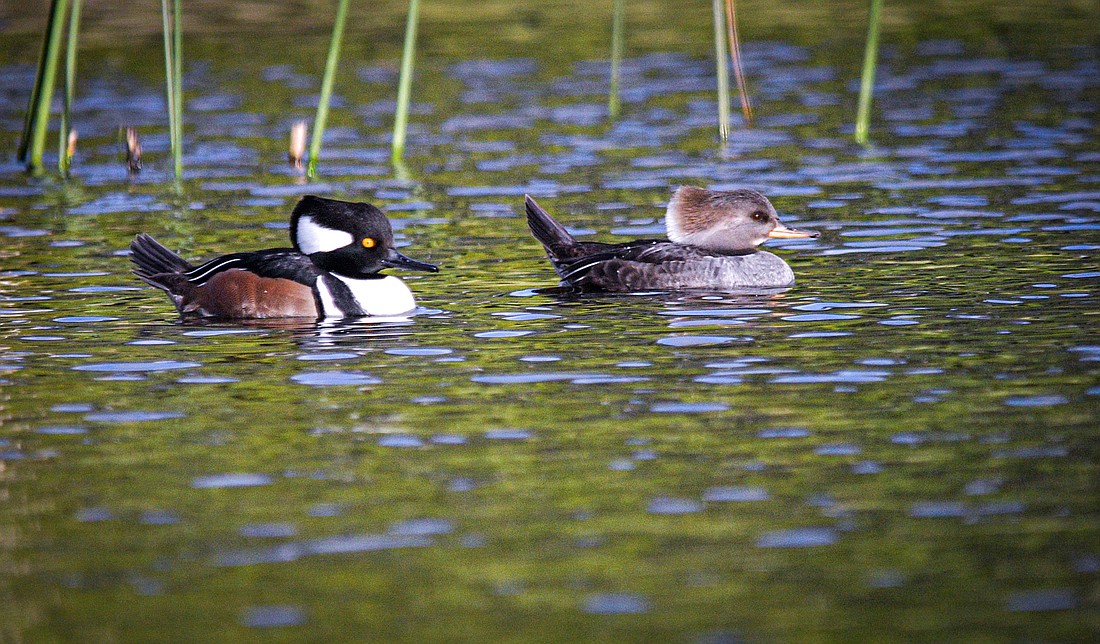- February 5, 2026
-
-
Loading

Loading

With their dramatic black faces, golden eyes and brilliant white crests, male hooded mergansers are quite stunning. Females and immature males are much less showy, with gray and brown plumage and tawny-reddish heads. But both genders share those impressive hood-like crests, which, when raised, make their little heads look quite a bit larger than they are.
The smallest of three species of mergansers in North America, hooded mergansers are the only ones that occur exclusively on this continent. These quiet and elusive ducks, which almost never form large flocks. They are highly anticipated winter visitors, typically arriving in Florida in the fall. Look for them in small lakes and ponds, especially those surrounded by trees. These birds like their privacy.
Hooded mergansers primarily feed on small fish and aquatic invertebrates. Like other mergansers, they have a slender bill with serrated edges, to help them catch and hold their slippery prey. And, as they dive and swim submerged, to pursue and capture their prey, they have excellent underwater vision. When walking, these elegant birds are slightly less graceful, as their legs are set far back under their body, to give it a low profile when swimming.
Considered one of the rarest breeding birds in Florida, by April, most head back north, where they nest in tree cavities. As for all cavity-nesting birds, the existence of mature trees, or snags, is therefore an important habitat component, and loss of habitat due to development is a concern. Also, because hooded mergansers need clear water to see their prey, they are especially threatened by water quality degradation, due to development and agriculture.
Save our Seabirds is a non-profit organization whose mission is to rescue and rehabilitate sick and injured birds, releasing as many as they can, while educating our community about avoiding injuries and preserving habitats.